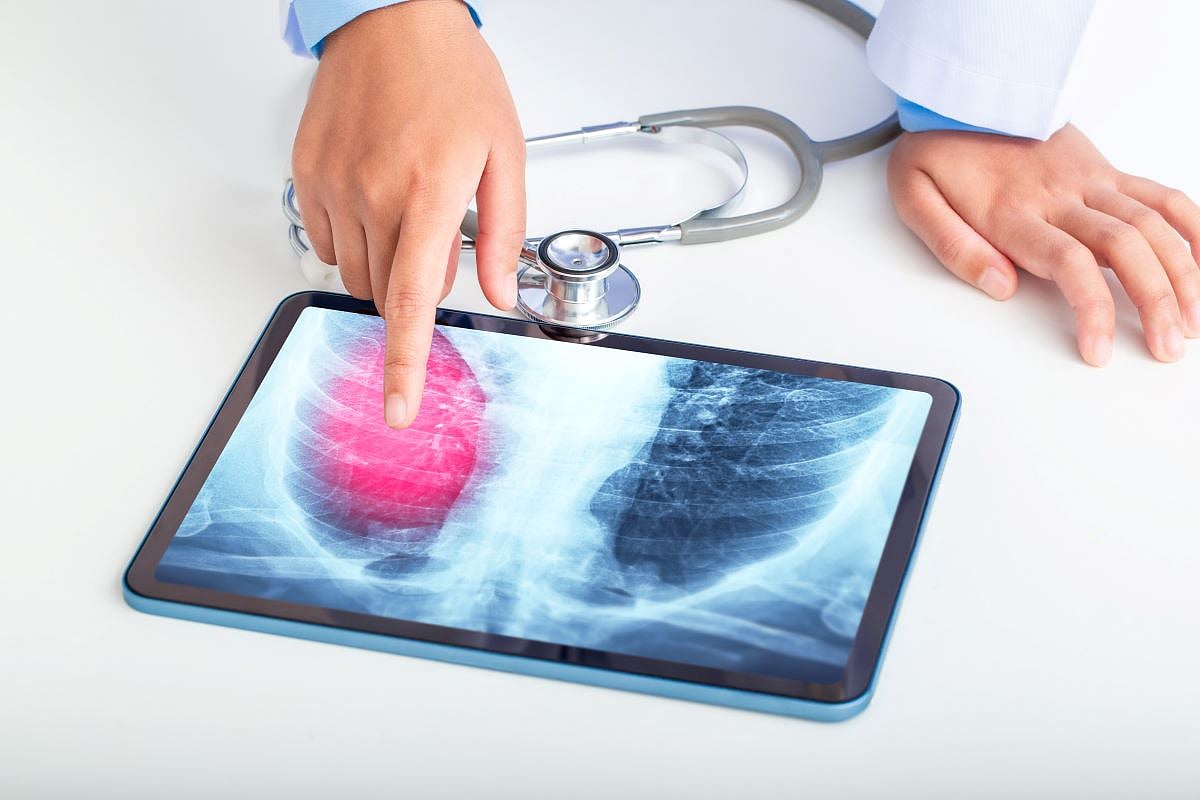Manténgase sano!

- Dennis Thompson
- Posted November 7, 2024
Early Steps to a Breath Test for Lung Cancer
An experimental portable device might be able to detect lung cancer from a person’s exhaled breath, researchers report.
The device contains “nanoflake” sensors that can detect small changes in the gases exhaled by a person with lung cancer.
The sensors specifically look for minute changes in isoprene. Declines in isoprene can indicate the presence of lung cancer, researchers said.
Using the device, researchers tested the breath of eight healthy people against that from five people with lung cancer, according to results published Nov. 6 in the journal ACS Sensors.
“Exhaled isoprene concentrations in lung cancer patients consistently fell below 40 parts per billion [ppb], in stark contrast to levels exceeding 60 ppb in healthy individuals,” wrote the research team led by senior researcher Qingyue Wang, an adjunct research professor of chemical engineering with Zhejiang University in Hangzhou, China.
The findings validate the device’s potential “for rapid and cost-effective lung cancer diagnosis,” the researchers concluded.
People breathe out many gases -- mainly water vapor and carbon dioxide, but a range of other airborne chemicals as well.
The sensors contain a blend of platinum, indium and nickel, researchers said.
They were capable of detecting isoprene levels as low as 2 parts per billion, a sensitivity that far surpassed earlier versions of the sensors, results show.
The sensors also responded to isoprene more than other chemicals commonly found in breath, and performed consistently in simulations, researchers said.
However, more research is needed to fully understand the link between isoprene and lung cancer, researchers said.
“Continuous research on the relationship between breath isoprene levels and lung cancer, as well as on the various influencing factors [e.g., age, health status], can help refine and further commercialize the technology,” the researchers said.
More information
The American Cancer Society has more on lung cancer.
SOURCE: American Chemical Society, news release, Nov. 6, 2024
